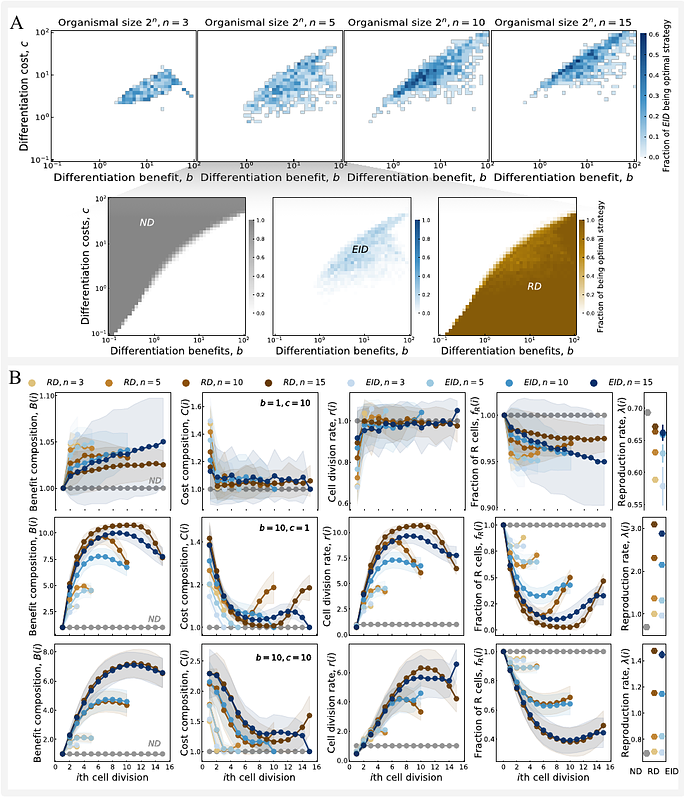Theoretical origins of extreme cell differentiation irreversibility: a dynamic model of organismal size effects

Theoretical origins of extreme cell differentiation irreversibility: a dynamic model of organismal size effects
Gao, Y.; Zhao, X.; Li, C.
AbstractCell differentiation is a pivotal evolutionary transition underlying multicellular complexity. Irreversible differentiation -- a process in which cells permanently lose plasticity to become specialized types -- is hypothesized to emerge predominantly in large, cell-rich organisms. However, the causal relationship between organismal size and the evolutionary origins of this extreme developmental commitment remains unclear. By integrating developmental dynamics into a mathematical model, we demonstrate that extreme irreversible differentiation (where all cell types exhibit irreversibility) most robustly evolves in intermediately sized multicellularity. This reveals a non-monotonic dependence of cell fate determinism on an organismal scale. Specifically, increasing organismal size initially promotes extreme irreversible differentiation by enhancing the selective advantages of cellular division of labor. Beyond a critical size threshold, however, further expansion destabilizes this extreme irreversibility due to its decreasing differentiation advantages compared with reversible differentiation. Counterintuitively, smaller organisms establish cellular irreversibility at earlier developmental stages rather than larger organisms. Our framework identifies an evolutionary double-edged sword: while body size expansion initially facilitates extreme differentiation irreversibility, it ultimately leads to its collapse. These results establish quantitative links between organismal dimensions and cell fate determinism, explaining the size-dependent evolution of developmental strategies in simple multicellular systems.